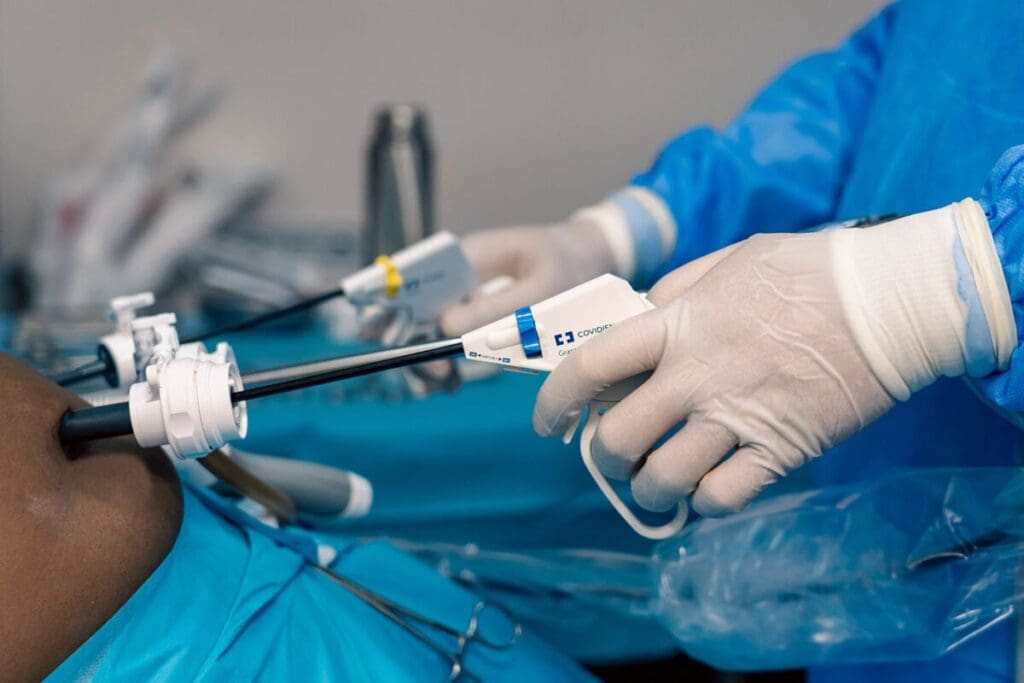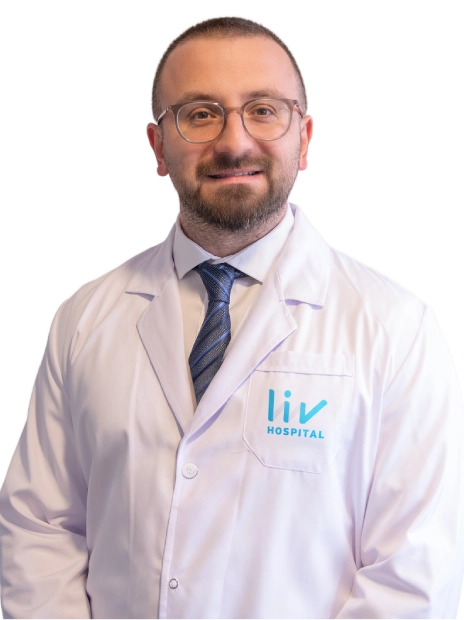Finding the right time for hernia surgery depends on many things. These include your health, any risks, and how bad the hernia is.
Hernias can happen to anyone, but they’re more common as we age. The age when a hernia shows up can vary based on its type.

Some hernias are there from birth, while others appear later. This can be due to getting older or certain life choices. We’ll look at what affects the choice to have surgery at different ages.
Key Takeaways
- The ideal age for hernia surgery depends on individual health factors.
- Hernias become more prevalent with increasing age.
- The type of hernia influences the average age of occurrence.
- Lifestyle and overall health play a significant role in hernia development.
- Personalized care is key for the best results.
When Hernias Typically Occur Across the Lifespan

Knowing when hernias happen is key to deciding on surgery. Hernias can strike at any age. They’re influenced by things like birth defects, lifestyle, and aging.
Congenital and Pediatric Hernias
Congenital hernias are there from birth and might go away by early childhood. Umbilical hernias are common in babies and usually close by 3 to 5 years old. Sometimes, surgery is needed if the hernia doesn’t close or is big.
Adult-Onset Hernias
Adult hernias, like inguinal hernias, often hit men over 40. They come from more physical work and the weakening of the belly wall with age. Inguinal hernias are a big part of adult hernia cases.
Age-Related Degeneration and Hernia Risk
As we get older, the chance of getting a hernia goes up. Age-related degeneration weakens the belly wall, making it more likely to herniate. Studies show umbilical hernias in adults peak in women 31-40 and men over 60, showing age’s role in hernia risk.
Knowing when different hernias happen and how age affects risk helps people make better surgery choices.
Key Factors That Influence Hernia Surgery Timing
Deciding to have hernia surgery involves many important factors. It’s key to think about the risks of waiting too long for the surgery.
Risk of Complications Without Surgery
Waiting too long for hernia surgery can cause serious problems. Incarceration occurs when the hernia becomes trapped, and strangulation happens when the blood supply is cut off. These issues can be life-threatening and need emergency surgery.
When planning hernia surgery, we look at the risk of these complications. Patients at high risk might need surgery sooner.
Overall Health Status Considerations
A patient’s health is a big factor in when to have hernia surgery. Patients with underlying health conditions, like diabetes or heart disease, need extra care before surgery.
We check the patient’s health to lower the chance of surgery problems. We consider age, nutrition, and other health issues. This helps us find the best time for surgery for the best results.
Hernia Surgery Outcomes in Patients Under 40
Hernia surgery in patients under 40 usually has good results. The focus is on long-term recovery and how often the hernia comes back. Modern surgery methods have greatly improved outcomes for young patients. We’ll look at what affects these results, like how often the hernia comes back and how it impacts work and lifestyle.
Long-Term Recurrence Statistics
Younger patients often have lower rates of hernia coming back after surgery. The use of mesh in surgery has been key in lowering these rates. Recent data shows that less than 5% of patients under 40 experience recurrence with modern techniques.
Younger patients tend to have stronger tissues and fewer health issues. This helps them heal faster. But, the type of hernia and the surgery method also affect recurrence rates.
Career and Lifestyle Considerations
For patients under 40, work and personal life are big factors in deciding to have hernia surgery. They are often at the peak of their careers and have big family or work commitments. Finding the right time for surgery is important.
Laparoscopic surgery is often chosen for young patients because it heals faster. It means they can get back to their lives sooner, without much disruption to work or personal life.
We know every patient is different. Our team works closely with each patient to find the best surgery plan. We consider both medical and personal factors to ensure the best results for patients under 40.
Middle-Age Considerations for Hernia Surgery
Middle age comes with many responsibilities. This makes choosing the right time for hernia surgery very important. At this age, people often have to balance work, family, and other duties. It’s key to find a good time for surgery without disrupting these important areas of life.
Balancing Surgical Timing with Life Responsibilities
When thinking about hernia surgery in middle age, weighing the pros and cons is essential. Delaying surgery might be okay for some, but it can also cause serious problems like hernia strangulation. This is a medical emergency.
Talking to a healthcare provider about your situation is a good idea. They can help figure out the best time for surgery. Things like the type of hernia, your health, and lifestyle play a big role in this decision.
Optimal Surgical Approaches for Ages 40-65
Between 40 and 65, there are several surgery options. Minimally invasive techniques, like laparoscopic surgery, are popular. They lead to quicker recovery and less pain compared to open surgery.
- Laparoscopic surgery: Great for those who want to get back to normal fast.
- Open surgery: Better for bigger hernias or when laparoscopic isn’t right.
- Robotic surgery: Offers precise and flexible surgery, possibly cutting down recovery time.
The right surgery depends on many factors. This includes the surgeon’s advice and your health. We help patients choose the best surgery for their needs.
Hernia Surgery in Patients Over 65: Risk Assessment
Older adults thinking about hernia surgery face special challenges and risks. As we get older, our health and other medical conditions can affect how well we do after surgery. For those over 65, deciding to have hernia surgery means weighing the benefits against the risks carefully.
Special Considerations After Age 80
After turning 80, the risks of hernia surgery grow even more. This is because of less physical strength, possible brain decline, and more health problems. Choosing the right patients and improving their health before surgery is key for those in this age group to lower the risks.
Pre-Surgical Evaluation Process
The check-up before surgery for older adults is very detailed. We look at their heart and lung health, how well they eat, and their brain function. We also check their ability to function and their support system to help them recover well. This detailed check-up helps us plan the surgery just right for each patient, aiming for the best results.
Modern Techniques in Hernia Surgery Across Age Groups
Hernia repair has become safer and more effective for all ages thanks to new surgical methods. These advancements have changed hernia surgery a lot. They meet the needs of different age groups.
The field of hernia surgery has grown a lot. It now uses modern hernia surgery techniques to improve results. These new methods help older adults, who often have more health problems.
Age-Specific Surgical Adaptations
Surgeries for hernia repair are now tailored for different ages. Younger patients get treatments that help them heal fast and avoid complications. This lets them get back to their lives quickly.
Older patients need special care because of their health and other conditions. Age-specific adaptations in surgery and aftercare are key. They make sure treatment is safe and works well.
Minimally Invasive Options for High-Risk Patients
Minimally invasive surgery is a big help for high-risk patients, like the elderly. It uses small cuts, causes less pain, and helps patients recover faster. This is thanks to laparoscopic and robotic surgery.
These new methods improve patient results and lower the chance of problems. This makes hernia surgery a better option for more people. As we keep improving, we focus on age-specific adaptations and minimally invasive options for each patient’s needs.
Long-Term Outcomes and Follow-Up Requirements by Age
When it comes to hernia surgery, looking at long-term results is key. These results change with age. The success of the surgery also depends on the patient’s age and health.
Ten-Year Recurrence Rate Patterns
Research shows that hernia surgery success changes over ten years. Younger patients usually have lower recurrence rates than older adults. This is because older people often have more health issues.
- Patients under 40: Recurrence rates are generally lower, often below 5% at 5 years.
- Patients between 40-65: Recurrence rates range from 5-10% at 5 years, increasing with age.
- Patients over 65: Higher recurrence rates are observed, often above 10% at 5 years, due to age-related factors.
Age-Related Recovery Milestones
Recovery from hernia surgery also changes with age. Younger people usually heal faster than older adults. Age-related recovery milestones include:
- Return to normal activities: Younger patients usually return to their normal activities within a few weeks, while older adults may take longer.
- Full recovery: The time to full recovery can range from a few months in younger patients to several months or even longer in older adults.
Monitoring Protocols for Different Age Groups
Because of these differences, monitoring protocols should be tailored to the individual based on age and other factors. Younger patients might need less follow-up, while older adults need more due to higher risks.
Here are some monitoring protocols:
- Patients under 40: Annual follow-up for the first 5 years.
- Patients between 40-65: Bi-annual follow-up for the first 5 years, then annually.
- Patients over 65: Bi-annual follow-up for the first 10 years, with more frequent visits if other health issues are present.
By understanding these long-term outcomes and tailoring follow-up care to the individual’s age and health status, we can improve the overall success of hernia surgery and patient satisfaction.
Conclusion: Patient-Centered Decision Making for Hernia Surgery
When thinking about hernia surgery, it’s key to focus on the patient. This means looking at each person’s health, lifestyle, and what they prefer. This helps decide the best way to go.
We’ve seen how hernias happen in different ages and what makes surgery necessary. Knowing this helps both patients and doctors make choices that fit each person’s needs.
Good decision making for hernia surgery means looking at the patient’s health and situation closely. This way, doctors can suggest the best treatment. This leads to better results for everyone.
At our place, we really value care that’s made just for you. We mix medical knowledge with caring for the patient. This way, we make sure people get the right treatment for them.
FAQ
At what age does hernia typically occur?
Hernias can happen at any age. They can be present at birth or develop later in life.
What factors influence the decision for hernia surgery?
Several factors decide if someone needs hernia surgery. These include the risk of complications and the person’s health.
Are hernia surgery outcomes different for younger patients?
Yes, younger patients often do well after hernia surgery. They tend to have fewer problems than older people.
How does age affect the risk of developing a hernia?
The risk of getting a hernia goes up with age. Middle age is when many people have surgery for this reason.
What are the considerations for hernia surgery in patients over 65?
For those over 65, deciding on surgery is complex. It’s about weighing the risks and benefits, as older adults face more complications.
What are the latest advancements in hernia surgery?
Hernia surgery has made big strides. New methods offer better results for all ages, including special care for the young and old.
How do long-term outcomes of hernia surgery vary by age?
The long-term results of hernia surgery differ by age. Knowing these outcomes helps plan for follow-up care.
What is the typical recovery process like after hernia surgery?
Recovery after hernia surgery depends on age. It’s important to have age-specific care plans for follow-up.
Can lifestyle and career demands influence hernia surgery outcomes?
Yes, lifestyle and work demands can affect hernia surgery results. This is more true for younger patients.
References
Mayer, F. (2015). Is the age of >65 years a risk factor for endoscopic/laparoscopic inguinal hernia surgery? Surgical Endoscopy, 29(7), 1999-2006.https://pmc.ncbi.nlm.nih.gov/articles/PMC4710662/


































